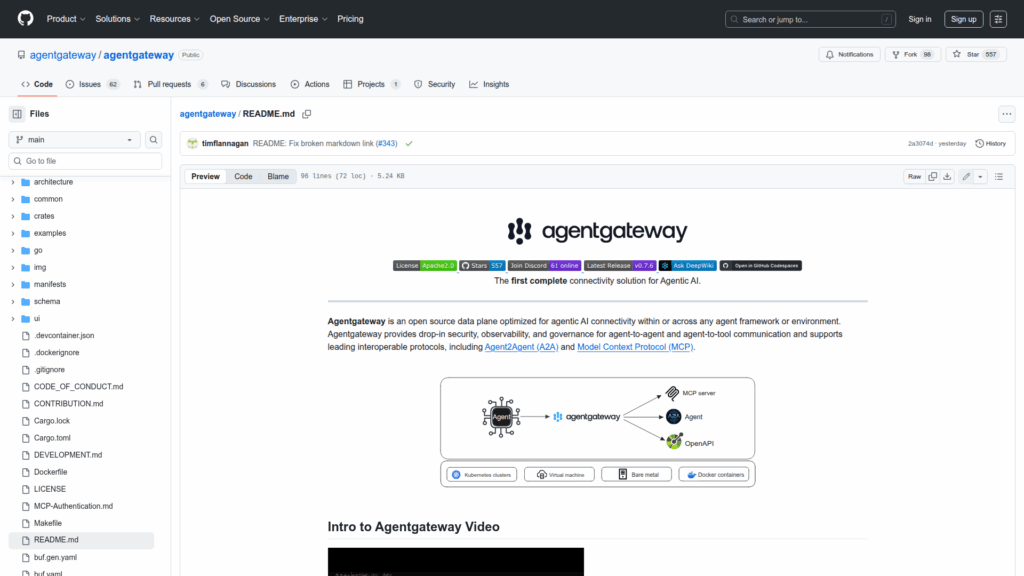agentgateway
Basic Information
Agentgateway is an open source data plane designed to provide connectivity, security, observability, and governance for agentic AI systems. It is built to sit within or across agent frameworks and environments and to handle agent-to-agent and agent-to-tool communication. The project targets developers and operators who need a scalable, interoperable proxy layer that supports industry protocols such as Agent2Agent (A2A) and the Model Context Protocol (MCP). The repository contains the Rust-based implementation, a built-in UI for exploring agent connections, documentation links, and guidance for getting started, contributing, and joining community meetings. It aims to be deployable from a single machine up to large multi-tenant environments and to integrate legacy APIs as MCP resources.








